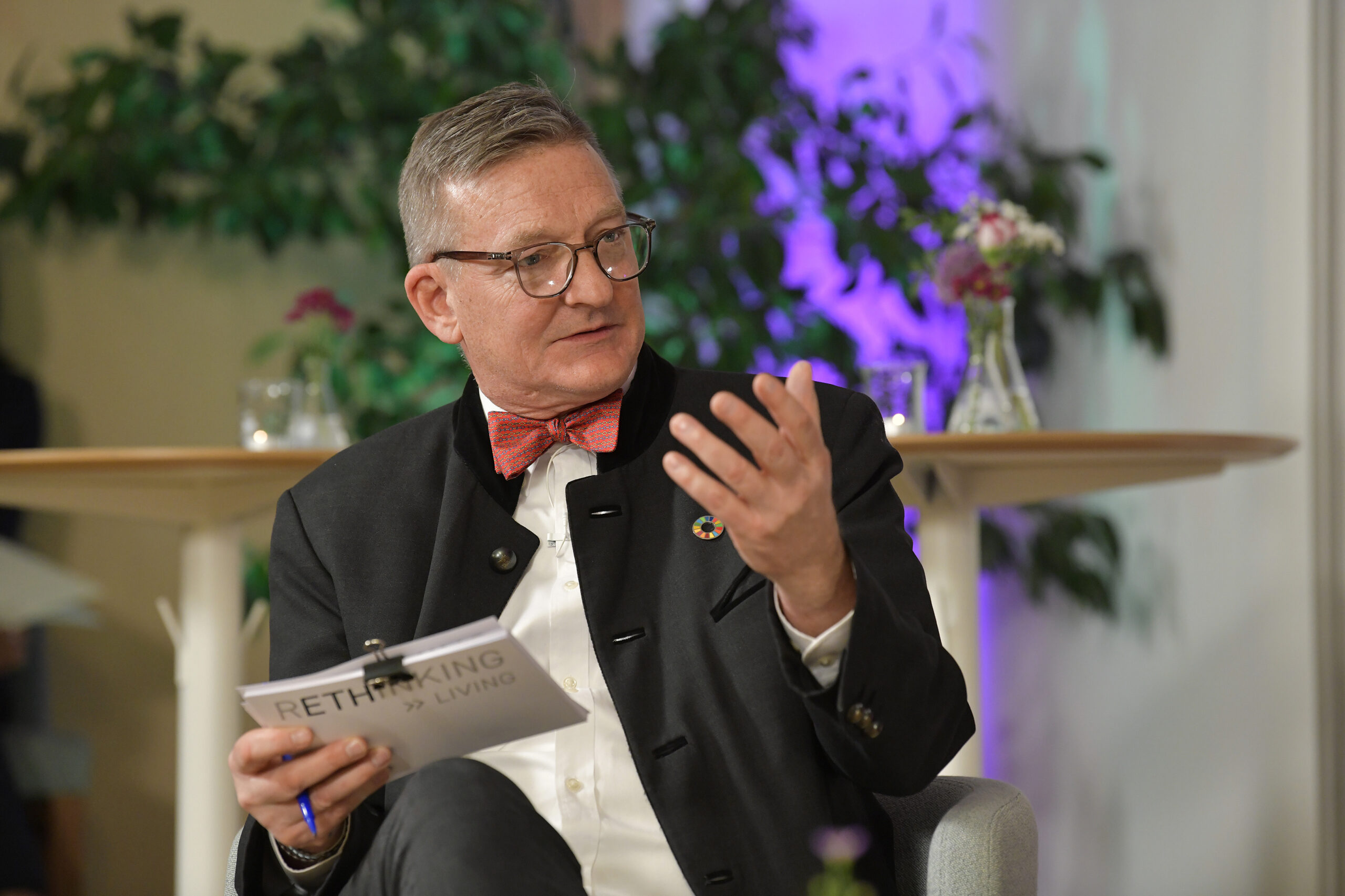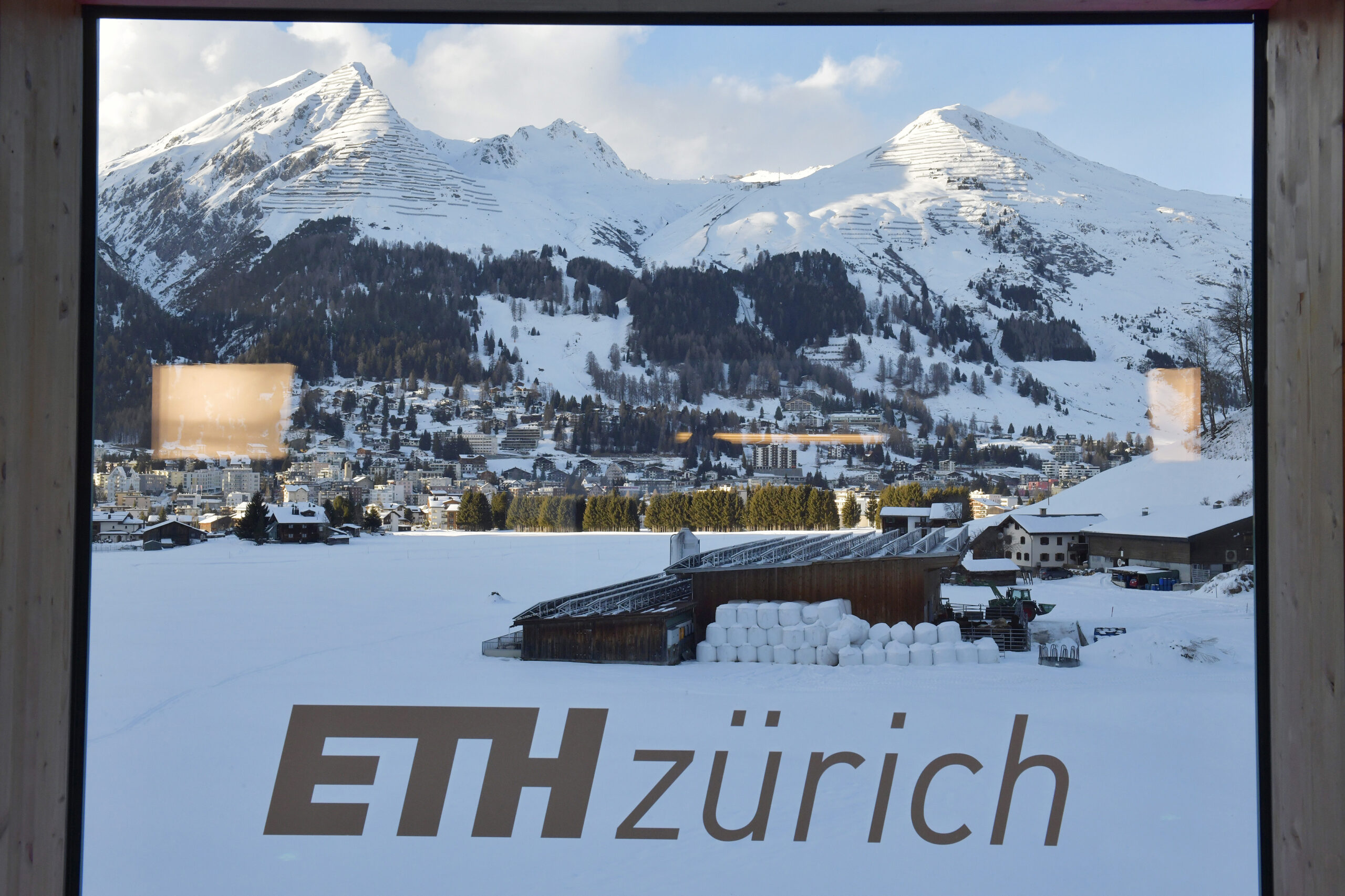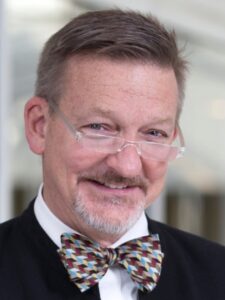Cooperation in a Fragmented World
“Cooperation in a Fragmented World” was the overarching theme at this year’s annual meeting in Davos. According to Luebkeman, the world has always been fragmented. But now, there seems to be an explicit recognition of the fragmentation; an increase in the exposure to the extremes and the number of fragments. The root causes for this range from increasing resource competition and global political power shifts to the risks of social media amplifying the centrifugal forces of society and the climate crisis. It is easy to pick a few. The importance for us is to recognize that we are now facing a new global paradigm which requires us to think hard about the fragments fitting into the the puzzle of our world.
The ETH directly feels the fragmentation. One example is the loss of access to the European Horizon Research program. It is a clear manifestation of a loss of cooperation. We are working hard to find new bridges to build to overcome this loss. We are also thinking about the bridges that we might need to build in the future to create and strengthen cooperation within Switzerland as well as with unusual partners within the fragmented world.
ETH Zurich at the WEF
What does cooperation mean for ETH Zurich? Both ETH and the WEF are Swiss institutions. How do we as a Swiss institution, observe, participate, and anticipate the fragmentation's impact on our students, Swiss society, and the Swiss economy?
ETH Zurich is primarily funded by the Swiss taxpayer. And at the same time, as one of the world's foremost technical universities. We have a significant presence and a significant voice in the scientific world. For us to fulfill our mission of serving society, we need to have the best people in the world at our institution. It is therefore important that we are acknowledged by those who attend the WEF as very significant players in the global intellectual ecosystem; our brand needs to be recognized not only within Switzerland, but around the world. Only in this way do we have the greatest chance of attracting the brightest minds and increasing our research opportunities. Let’s not forget that Switzerland's primary natural resource is people.
Personal Highlights
Davos is always on my annual calendar because the convening power of the World Economic Forum is second to none in the world. No other place can bring civil society, corporate society, and government together in the way that it does. It is essentially a one-stop-shop for meeting many of the world’s most influential decision makers.
Chris Luebkeman’s highlights were threefold: First, seeing friends and hearing what they've been up to over the past year or two. Second, being able to facilitate conversations on topics which matter to build bridges for ETH. Seeing the audience react shows how relevant our sessions are and how relevant our constituents find our presence in Davos. Third, the increased focus on the natural world. Around 20% of all sessions had something to do with climate or the environment. This has not always been the case. It is encouraging to see the recognition of the importance of the natural world by an increasing number of leaders. It remains to be seen to what extent their action will be in line with their discussions in Davos.
“Cooperation in a Fragmented World” was the overarching theme at this year’s annual meeting in Davos. According to Luebkeman, the world has always been fragmented. But now, there seems to be an explicit recognition of the fragmentation; an increase in the exposure to the extremes and the number of fragments. The root causes for this range from increasing resource competition and global political power shifts to the risks of social media amplifying the centrifugal forces of society and the climate crisis. It is easy to pick a few. The importance for us is to recognize that we are now facing a new global paradigm which requires us to think hard about the fragments fitting into the the puzzle of our world.
The ETH directly feels the fragmentation. One example is the loss of access to the European Horizon Research program. It is a clear manifestation of a loss of cooperation. We are working hard to find new bridges to build to overcome this loss. We are also thinking about the bridges that we might need to build in the future to create and strengthen cooperation within Switzerland as well as with unusual partners within the fragmented world.
ETH Zurich at the WEF
What does cooperation mean for ETH Zurich? Both ETH and the WEF are Swiss institutions. How do we as a Swiss institution, observe, participate, and anticipate the fragmentation's impact on our students, Swiss society, and the Swiss economy?
ETH Zurich is primarily funded by the Swiss taxpayer. And at the same time, as one of the world's foremost technical universities. We have a significant presence and a significant voice in the scientific world. For us to fulfill our mission of serving society, we need to have the best people in the world at our institution. It is therefore important that we are acknowledged by those who attend the WEF as very significant players in the global intellectual ecosystem; our brand needs to be recognized not only within Switzerland, but around the world. Only in this way do we have the greatest chance of attracting the brightest minds and increasing our research opportunities. Let’s not forget that Switzerland's primary natural resource is people.
Personal Highlights
Davos is always on my annual calendar because the convening power of the World Economic Forum is second to none in the world. No other place can bring civil society, corporate society, and government together in the way that it does. It is essentially a one-stop-shop for meeting many of the world’s most influential decision makers.
Chris Luebkeman’s highlights were threefold: First, seeing friends and hearing what they've been up to over the past year or two. Second, being able to facilitate conversations on topics which matter to build bridges for ETH. Seeing the audience react shows how relevant our sessions are and how relevant our constituents find our presence in Davos. Third, the increased focus on the natural world. Around 20% of all sessions had something to do with climate or the environment. This has not always been the case. It is encouraging to see the recognition of the importance of the natural world by an increasing number of leaders. It remains to be seen to what extent their action will be in line with their discussions in Davos.





